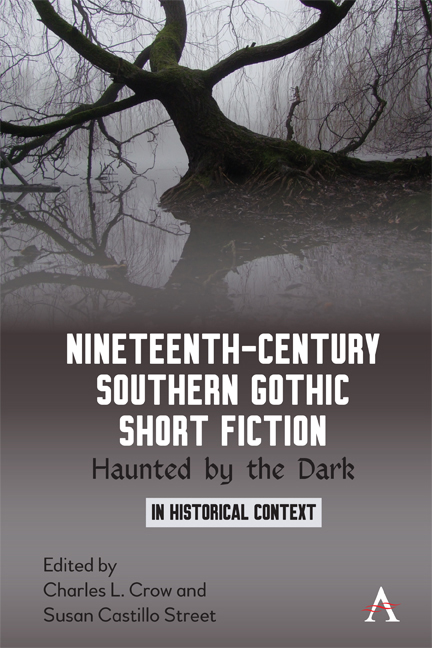Chapter Four - Henry Clay Lewis, “A Struggle for Life” (1850)
Published online by Cambridge University Press: 20 January 2022
Summary
Henry Clay Lewis (1825–1850) published one collection of sketches and stories, Odd Leaves from the Life of a Louisiana Swamp Doctor (1850) under the pseudonym Madison Tensas. He was writing in a tradition inadequately called “Old Southwest Humor,” rough stories of frontier life, often in dialect, usually published in a New York men's magazine called The Spirit of the Times. Often written by professional men—lawyers, politicians, journalists or doctors—these stories, freed from the usual constraints of Victorian-era publication, had a crude energy that made them influential on writers from Melville to Mark Twain to Faulkner—whose novella The Bear derives from T. B. Thorpe's “The Big Bear of Arkansas.”
Even by standards of Old Southwest Humor, Lewis's work is brutal and offensive. “A Struggle for Life” is a fantasy that exposes the South's deepest nightmare, the slave rebellion. It is a Gothic tale in the familiar pattern of a journey into the wilderness and an encounter with the Other—who seems to have sprung directly from the narrator's racial anxiety and repressed guilt.
Henry Clay Lewis was only 25 when he drowned, while trying to cross a swamp.
Text: Madison Tensas [Henry Clay Lewis], Odd Leaves from the Life of a Louisiana Swamp Doctor (Philadelphia, PA: A. Hart, 1850).
A STRUGGLE FOR LIFE
It was the spring of 183--, the water from the Mississippi had commenced overflowing the low swamps, and rendering travelling on horseback very disagreeable. The water had got to that troublesome height, when it was rather too high for a horse, and not high enough for a canoe or skiff to pass easily over the submerged grounds.
I was sitting out under my favourite oak, congratulating myself that I had no travelling to do just then,—it was very healthy—when my joy was suddenly nipped in the bud by a loud hello from the opposite side of the bayou. Looking over, and answering the hail, I discerned first a mule, and then something which so closely resembled an ape or an ourang outang, that I was in doubt whether the voice had proceeded from it, until a repetition of the hail, this time coming unmistakeably from it, assured me that it was a human.
- Type
- Chapter
- Information
- Nineteenth-Century Southern Gothic Short FictionHaunted by the Dark, pp. 47 - 54Publisher: Anthem PressPrint publication year: 2020



